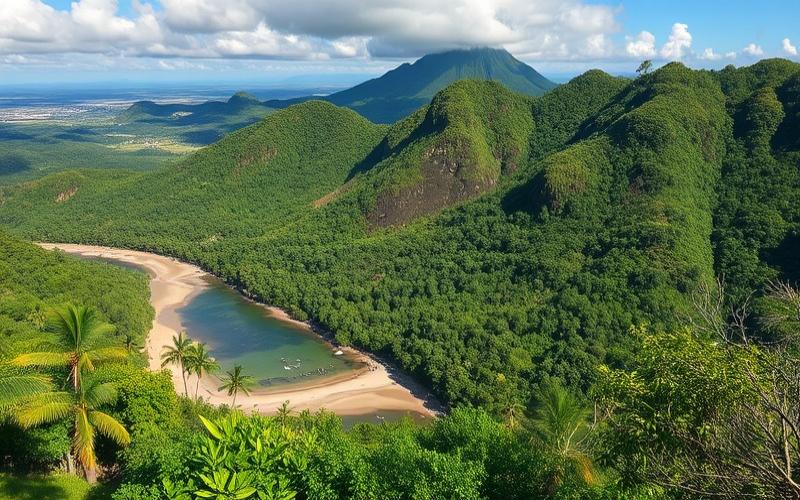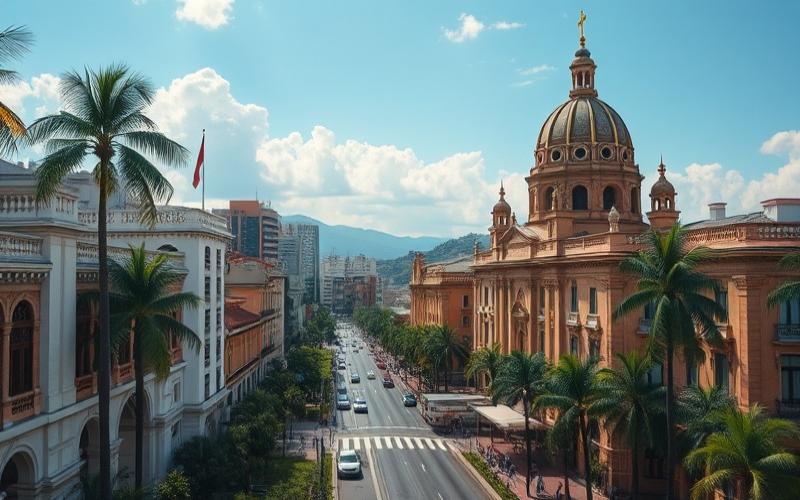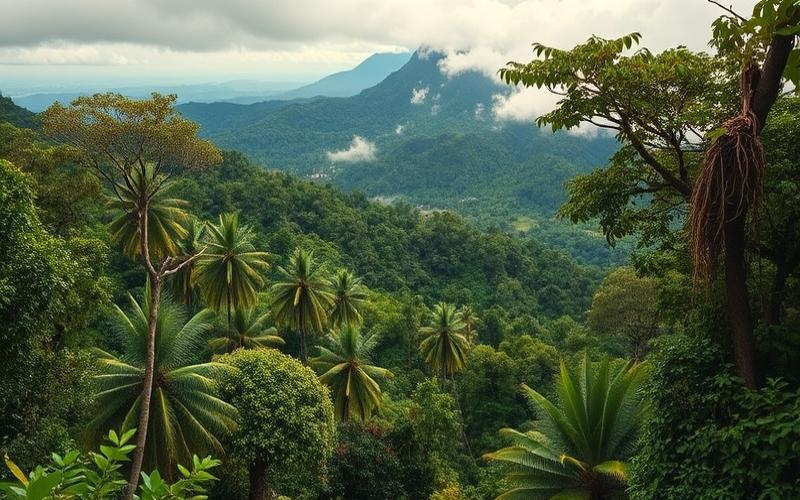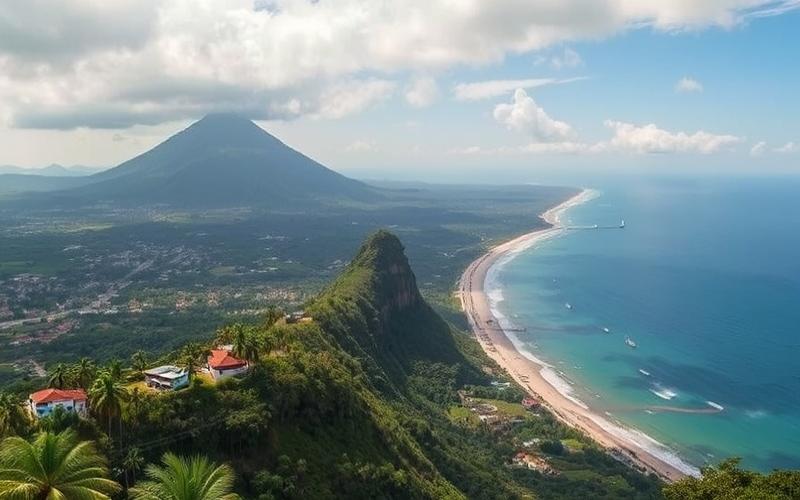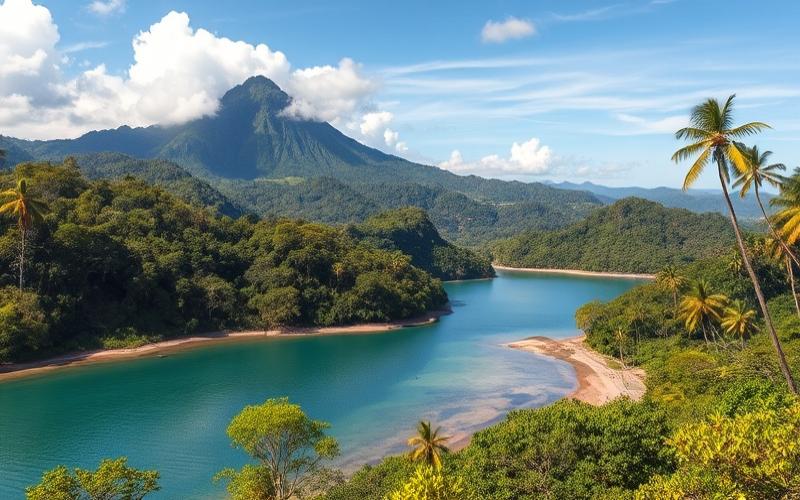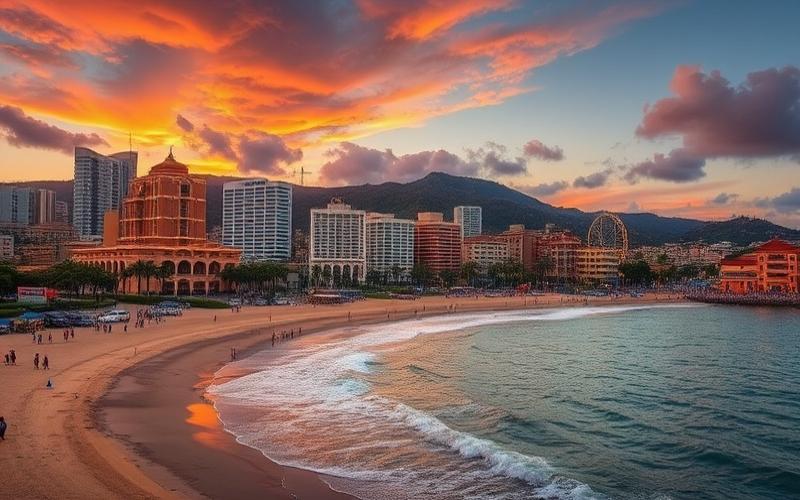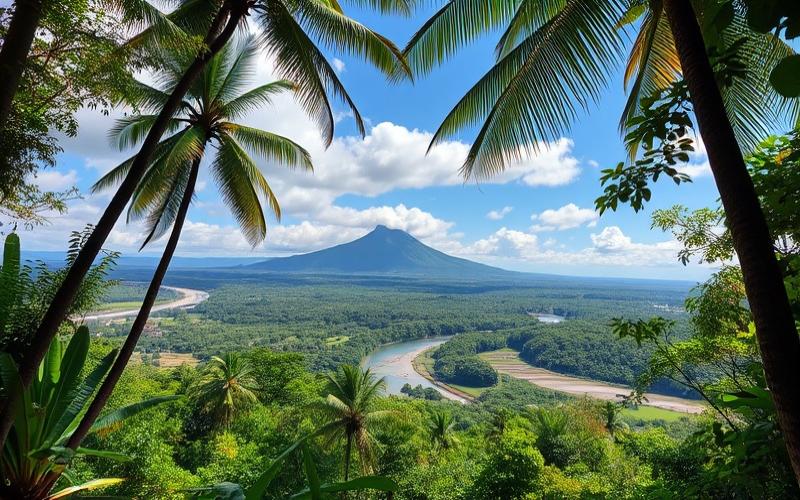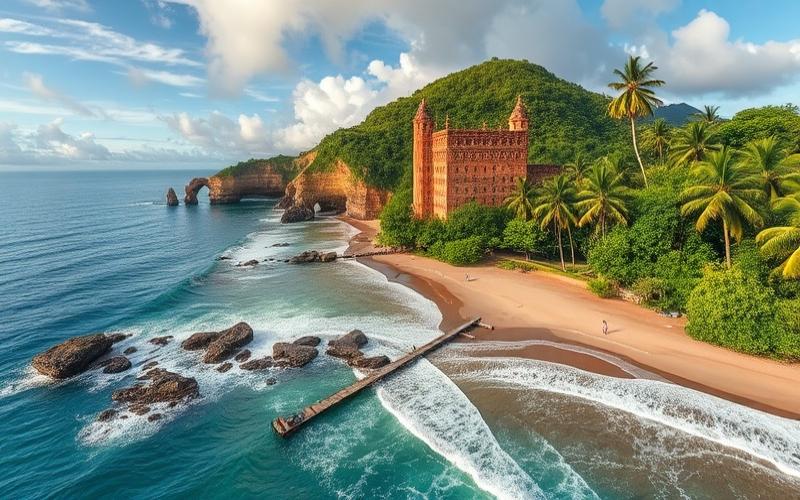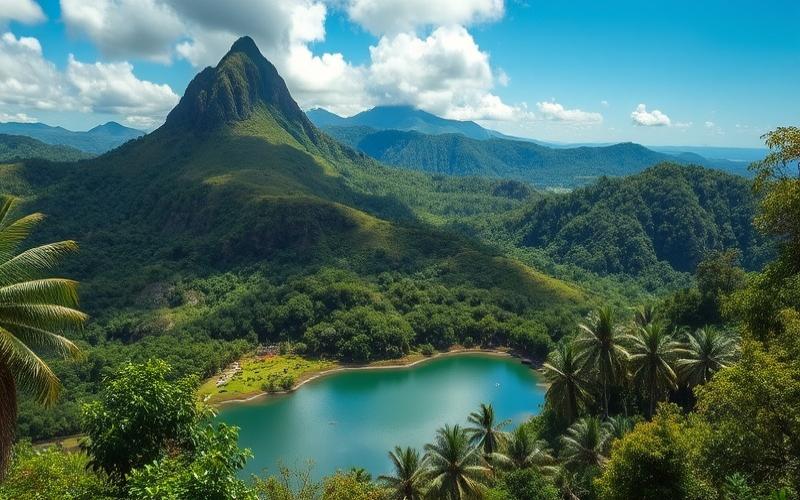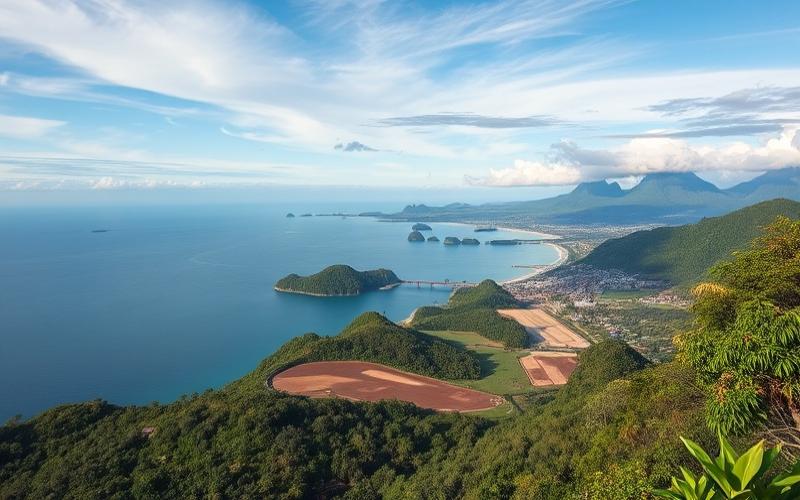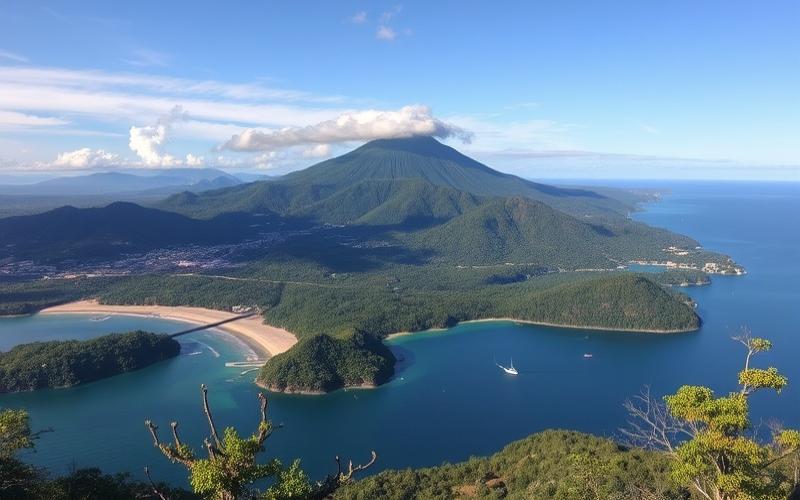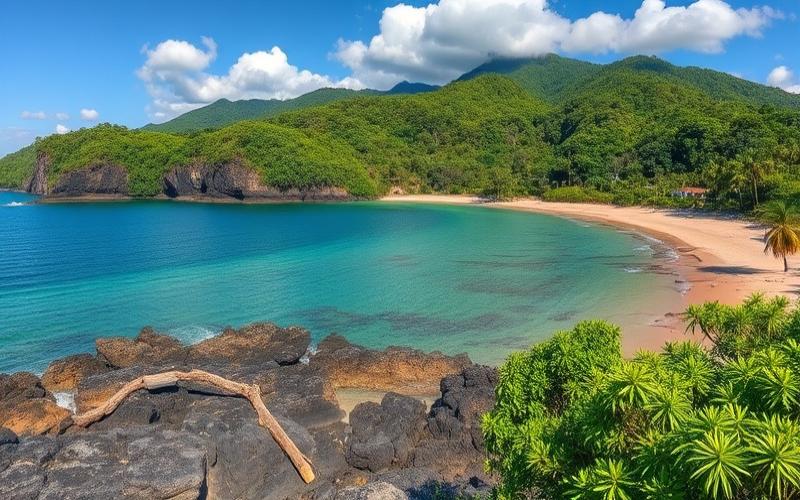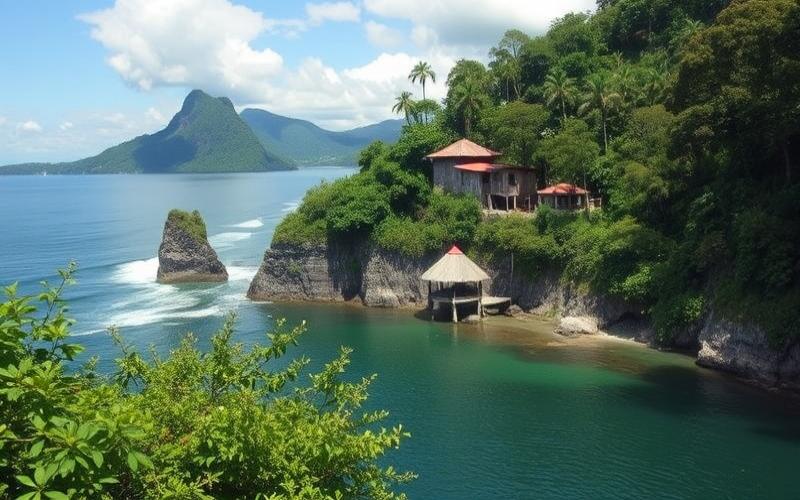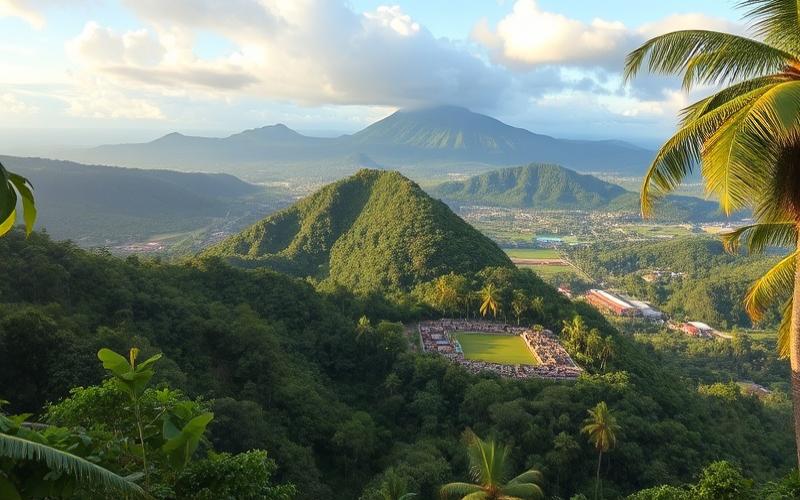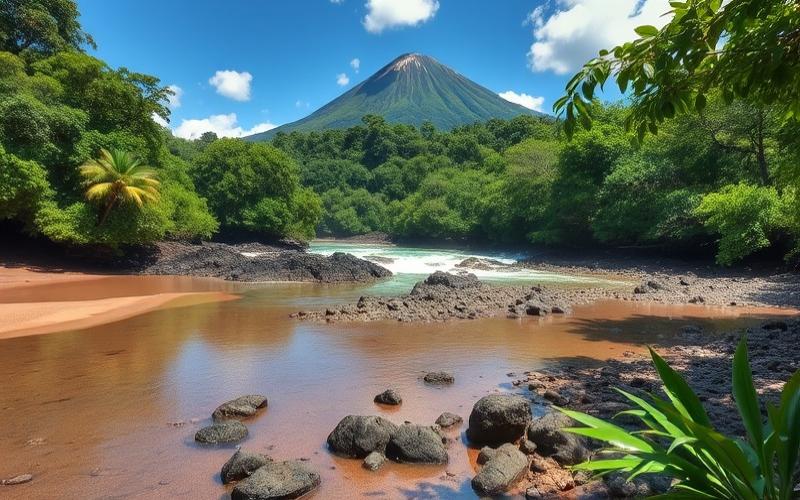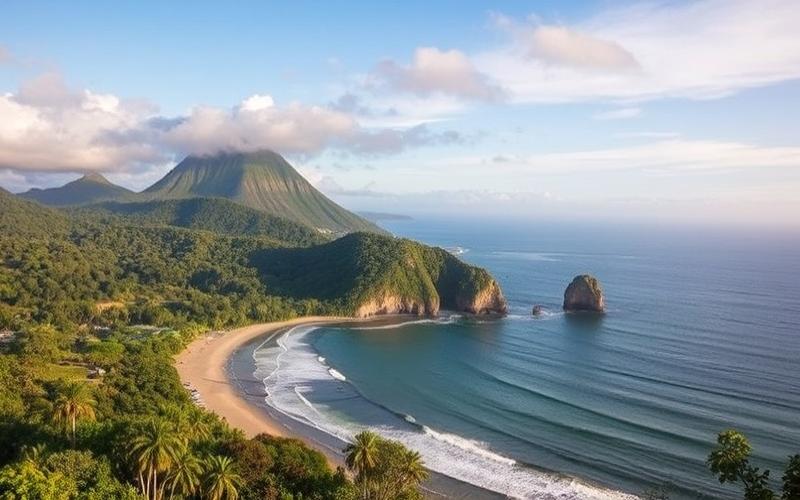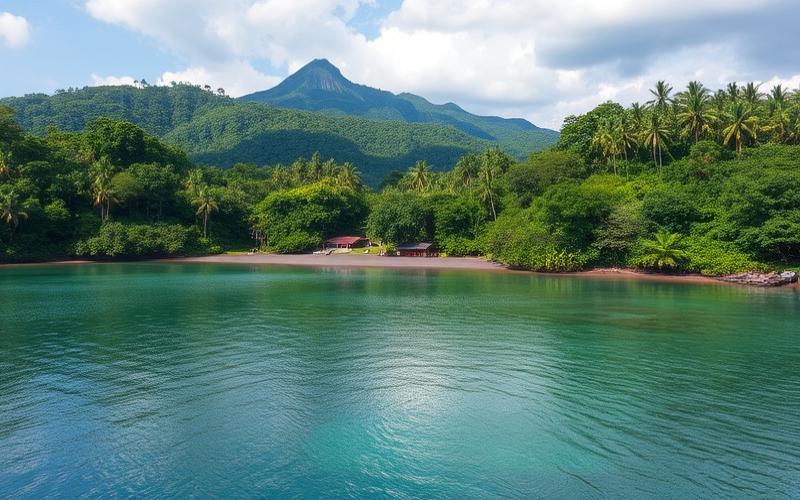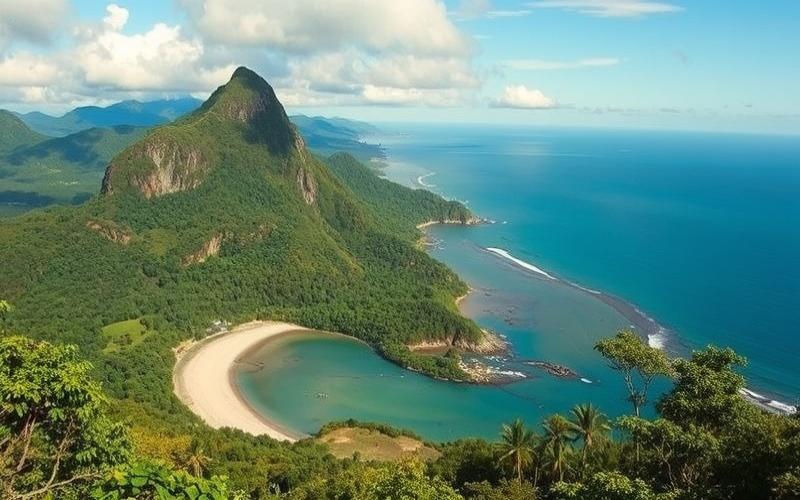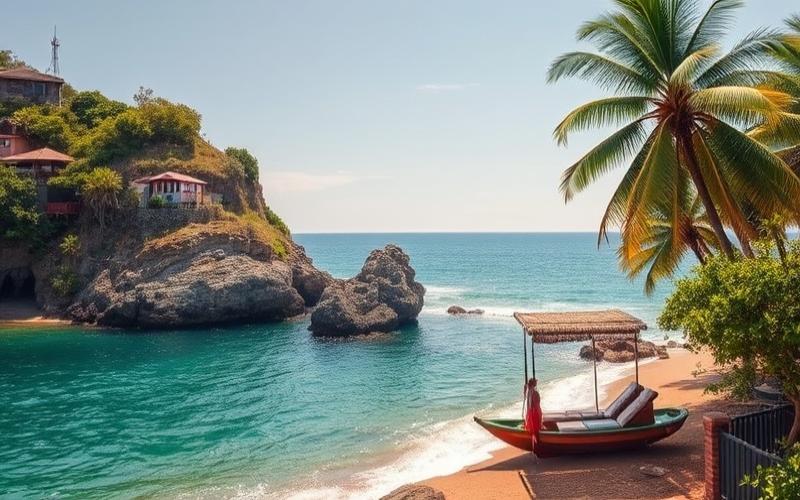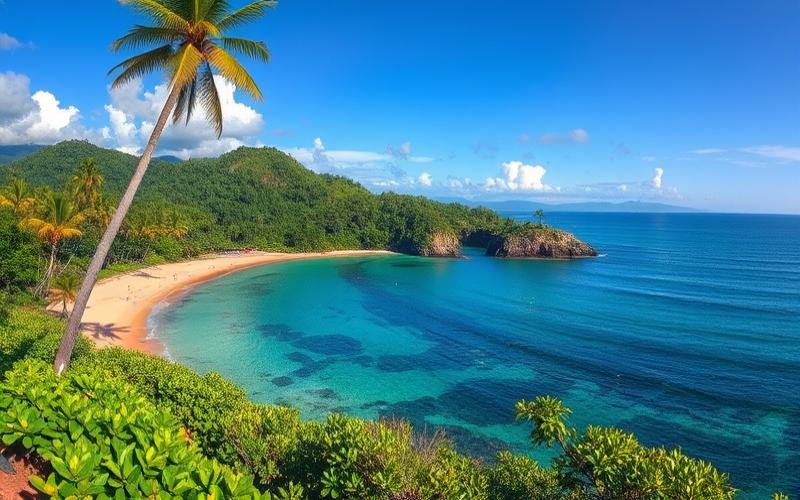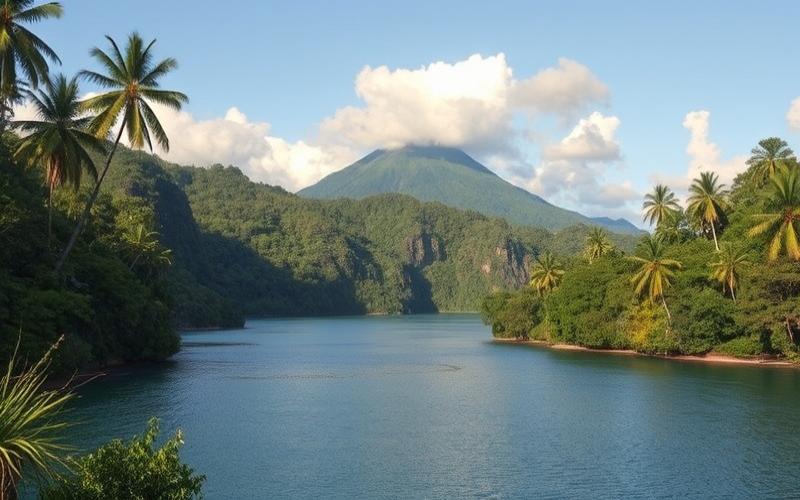
 Published on and written by Cyril Jarnias
Published on and written by Cyril Jarnias
The Impact of Global Events on Local Real Estate
The relationship between global events and local real estate markets is often closer than it appears, as demonstrated by the impact of the war in Ukraine on Costa Rican real estate.
This Central American country, often perceived as a haven of peace conducive to safe investments, now faces an unprecedented economic dynamic, influenced by geopolitical tensions thousands of miles away.
Good to Know:
International crises can create unexpected opportunities for savvy real estate investors.
Concrete Effects on the Costa Rican Market
From fluctuations in construction material prices to changes in foreign investment flows, this international crisis is reshaping the Costa Rican real estate landscape.
This situation presents both challenges and opportunities for local and international players in the real estate sector.
Analysis of the Geopolitical Consequences of the Ukrainian Crisis on Costa Rica
Global Context of the Ukrainian Crisis and Influence on International Relations
The Ukrainian crisis, triggered in 2022 and intensified through 2025, has profoundly altered the global geopolitical balance. The halt of Russian gas transit via Ukraine in January 2025 exacerbated energy tensions in Europe, leading to persistent inflation and major disruptions in global supply chains. This crisis occurs within an international context marked by the multiplication of conflicts (Middle East, Asia), reinforcing polarization between major Western powers and the Sino-Russian bloc.
Notable Global Consequences:
- Rise in energy and raw material prices
- Increased instability in global financial markets
- Strategic realignment with the rise of new regional actors
Costa Rica’s Geopolitical Position, International Alignment, and Partners
Costa Rica historically adopts a stance of active neutrality: it has maintained no army since 1949 and prioritizes multilateralism and international law as pillars of its diplomacy. Regarding the war in Ukraine:
- Costa Rica aligned with the Latin American majority advocating for strategic autonomy from major powers.
- It generally supports UN resolutions condemning any territorial violation while avoiding direct military or economic engagement.
Its main partners remain:
- United States (primary trading partner)
- European Union
- China (rapid growth in exchanges in recent years)
| Partner | Nature of Partnership | Economic Weight (%) |
|---|---|---|
| United States | Trade/investment | ~40 |
| EU | Trade/tourism | ~18 |
| China | Import/export/financing | ~10 |
Possible Indirect Effects for Costa Rica
Dependence on international markets makes the Costa Rican economy vulnerable to exogenous shocks from major geopolitical crises:
Global Economic Fluctuations
- General increase in import costs (energy, agricultural inputs)
- Imported inflation affecting essential goods
Supply Chains
- Logistical delays due to global congestion
- Increased cost of maritime transport
Impacts on International Trade
Agricultural exports (coffee, bananas) are indirectly affected by these increases; conversely, some tropical products occasionally benefit from increased demand during shortages elsewhere.
Potential Impact on the Costa Rican Real Estate Market
Real estate in Costa Rica is traditionally driven by:
- Growing interest from foreign investors (particularly North Americans/Europeans seeking political stability)
- Tourism growth generating strong seasonal rental demand
However, in this unstable context:
Factors Favoring Relative Resilience:
- Increased international search for safe destinations: maintenance or even temporary rise in high-end real estate demand
- Reassuring local political stability for expatriates/private investors
Unfavorable or Uncertain Factors:
- Overall inflation potentially leading to a general increase in material/construction costs
- Potential decrease in foreign purchasing power if prolonged recession in their home countries
Summary list of observed/recent effects:
- Average prices in San José have increased between 4% and 8% since mid-2023 due to inflationary effects.
- Foreign demand remains strong but is beginning to show increased sensitivity to exchange rates/strong dollar.
- Some residential projects see their profitability eroded by the rapid rise in logistical/import costs.
| Factor | Expected Effect | Recent Data |
|---|---|---|
| Material Costs | +10% to +15% depending on sector | Upward trend |
| Foreign Demand | Stable/slight increase | Stable volumes |
| Average Real Estate Price | +4% to +8% | San José / coasts |
Key Takeaway
Indirect exposure to global economic consequences remains real but limited thanks to the specific “safe haven” positioning that the Costa Rican real estate market still offers to international investors seeking political/health/climate stability.
However,
the persistence or future aggravation of international tensions could weigh more heavily if it were to durably slow tourist/financial flows or provoke a major recessionary shock among its main trading partners.
Good to Know:
The Ukrainian crisis, by redefining geopolitical and economic alliances, has influenced Costa Rica, mainly through its repercussions on the global economy. Neutral on the international stage, Costa Rica is economically linked to the United States and the European Union, direct actors in the conflict. Disruptions in supply chains and volatility in global markets, caused by sanctions against Russia, can impact Costa Rican foreign trade. This global instability affects foreign investor interest in Costa Rica, indirectly influencing the real estate market. Indeed, while rising imported construction costs could increase local real estate prices, the search for stable destinations by investors can stimulate demand for real estate properties. Recent analyses indicate that, despite these fluctuations, Costa Rica’s relative economic stability could make it a refuge for capital, boosting the real estate sector if the country manages to maintain an attractive investment climate.
The Impact of the Influx of Ukrainian Refugees on the Costa Rican Housing Market
Number of Ukrainian Refugees Welcomed in Costa Rica
Since the beginning of the conflict in Ukraine, Costa Rica has welcomed a very limited number of Ukrainian refugees, estimated at less than a hundred. Recent data on first-time asylum seekers indicate that the vast majority of refugees in Costa Rica come from Central America (mainly Nicaragua), while the reception of European nationals, specifically Ukrainians, remains marginal.
Effect on Housing Market Demand
- The arrival of Ukrainian refugees has had only a negligible impact on overall housing demand, compared to much larger flows from neighboring countries.
- No notable concentration of these refugees in a specific region has been reported; their presence is mainly diluted in the central urban area (San José and periphery), which traditionally welcomes newcomers.
| Factor | Observed Impact |
|---|---|
| Arrival Volume | Low |
Good to Know:
Since the beginning of the conflict in Ukraine, Costa Rica has welcomed approximately 1,000 Ukrainian refugees, mostly settled in the San José and Guanacaste regions. This influx has caused a moderate increase in demand in the housing market, particularly for affordable apartments and medium-sized houses. Real estate prices have slightly increased in these areas, exacerbating the pre-existing housing shortage.
In response, the government has launched initiatives to increase the supply of temporary housing, also supporting the development of reception infrastructure. These efforts include partnerships with local NGOs and community engagement to foster the social integration of refugees, which has benefited the cultural enrichment of communities, while posing challenges in terms of resources and social services.
Key Takeaway: The occasional and quantitatively marginal reception of Ukrainian refugees in Costa Rica has not significantly altered the real estate market nor generated a particular need for new infrastructure. Institutional efforts remain focused on much more massive immigration primarily from Latin America. The local social impact remains non-existent at this stage.
Geopolitical Investments and Implications for the Costa Rican Real Estate Sector
Geopolitical investments, particularly those influenced by the war in Ukraine, have notably altered the landscape of the real estate market in Costa Rica. This dynamic is explained by a set of economic, political, and strategic factors that are redefining the origin and nature of international capital flows.
Costa Rica’s Attractiveness Factors for Foreign Investors:
- Political stability and legal security
- Strategic positioning in Latin America
- Strong commitment to environmental sustainability
- Absence of a permanent army
These elements offer European investors a reassuring alternative in the face of increased uncertainty on their continent.
Recent Evolution of Foreign Direct Investment (FDI) in Costa Rica:
| Year | FDI (in billions €) | Annual Growth (%) |
|---|---|---|
| 2023 | 3.53 | +8 |
| 2024 | 4.02 | +14 |
This historic progression confirms the growing interest in the country as a strategic “hub” for capital seeking stability and sustainable returns.
Reactions of European Investors Following the War in Ukraine:
- Active search for geographical diversification to reduce their exposure to risks associated with political and military instability in Eastern Europe.
- Marked interest in stable emerging markets, from which Costa Rica benefits thanks to its green and stable image.
- Some actors, however, express reservations related to persistent global uncertainties or fear of local real estate overheating.
Origin of New Capital Flows in Costa Rican Real Estate:
Indicative list:
- European capital seeking refuge outside the eurozone
- North American funds wishing to benefit from regional dynamism
- Asian groups sensitive to ESG (Environmental-Social-Governance) criteria
Geopolitical evolution also encourages some Ukrainian groups or close economic partners (notably via trade agreements between Kiev and San José) to consider a strengthened presence in sectors not directly exposed to the conflict.
Political/Economic Measures Taken by the Costa Rican Government:
Summary list:
- Acceleration of administrative procedures to favor FDI.
- Targeted tax incentives in certain strategic sectors (green technology, sustainable tourism).
- Active international promotion via the national brand “essential COSTA RICA” which highlights democratic stability, environmental excellence, and social innovation.
- Negotiation of bilateral agreements with several European countries as well as with Ukraine to further broaden the spectrum of potential trading partners.
The government has recently intensified its economic cooperation with Kiev, notably considering a framework agreement aimed at revitalizing trade exchanges and also mutual investments – a symbolic step that could pave the way for more structured real estate interactions between these two regions.
Local Testimonials:
“We are observing a significant multiplication in the number of investors from traditionally absent markets such as certain German or Scandinavian funds,” notes a real estate agent based in San José. “Many are explicitly seeking an area protected from any future escalation in Europe.”
A Costa Rican developer adds: “Our European interlocutors are very attentive to the local regulatory framework—they want to avoid any legal risk after having experienced several successive crises at home.”
In this global context marked by rapid realignment of economic alliances, the Costa Rican real estate market benefits widely:
- From a strategic repositioning as a safe-haven destination,
- From an unprecedented influx of diversified capital,
- And from increased recognition among international institutional actors wishing to combine financial profitability and societal responsibility.
This now places Costa Rica among the main indirect beneficiaries—outside the immediate conflict zone—of the new geopolitical imbalance induced by the war in Ukraine.
Good to Know:
The impact of the war in Ukraine on geopolitical investments is being felt in the Costa Rican real estate market, notably with renewed interest from European investors seeking stability elsewhere. Faced with instability in Eastern Europe, there is a notable reorientation of capital towards Costa Rica, perceived as a haven of peace for diversifying portfolios. In response, the Costa Rican government has implemented attractive tax incentives to welcome these investment flows, while strengthening regulations to prevent market overheating. Local actors, such as real estate agencies and developers, report an increase in transactions and heightened demand for high-end properties. In this tense geopolitical context, Costa Rica is skillfully positioning itself as a strategic actor offering promising opportunities to investors seeking security and returns.
Disclaimer: The information provided on this website is for informational purposes only and does not constitute financial, legal, or professional advice. We encourage you to consult qualified experts before making any investment, real estate, or expatriation decisions. Although we strive to maintain up-to-date and accurate information, we do not guarantee the completeness, accuracy, or timeliness of the proposed content. As investment and expatriation involve risks, we disclaim any liability for potential losses or damages arising from the use of this site. Your use of this site confirms your acceptance of these terms and your understanding of the associated risks.

